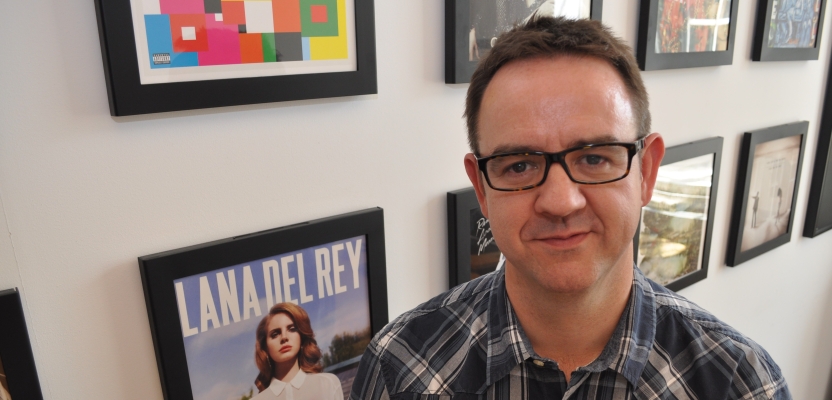Tell us a bit about your role! Is there a “typical” day?
There is no typical day, but there is a fairly common structure. It kicks off walking Bobby (our puppy) round our local park, while answering a handful of early emails, sending a few What’s Apps, checking the early charts (which come through on text every morning), plus reviewing the diary and my “actions” list to remind myself what the day has in store.
Post lockdown, this kind of work can start at any time from 7/8am onwards, but I try not to sit down at my desk until 9/9.30 - and then it all kicks off. My job is all about keeping the various plates spinning.
I am lucky to have a fantastic team of leaders who oversee operations, brand and commercial (thank you to Chris, Lauren and Becca) and my role is to make sure they are all okay, take up slack where possible and get involved when I can add value - to clear weeds out of the way, hand them the occasional shrub to plant, but not to water and maintain them, day-to-day.
What was the biggest challenge in getting to your current position?
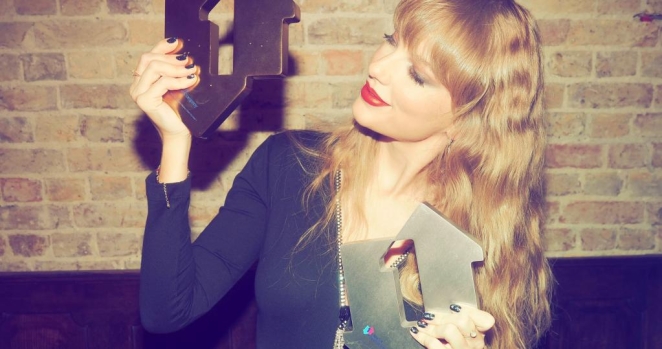
It would probably be making the transition from writing/commenting on the entertainment sector (as a business journalist) to running a company with such a history and heritage as the Official Charts Company.
Taking responsibility for such iconic institutions as the Official Singles Chart and Official Albums Chart has been the job of my life and, while you would have to be some kind of psychopath (as Jon Ronson might put it) not to experience a bit of imposter syndrome, I have genuinely loved every minute of it. Even the most challenging moments have been invigorating and stimulating.
What is your personal background and what role did it play in your career?
Growing up, I was a sporty, comprehensive-educated bookworm, who wanted to be a journalist from as early as I can remember. I loved reading and writing, literature and news, but always had a minor obsession with history, football statistics, music charts etc. I was born and raised in a small town in North Essex, my mother a dressmaker, my dad a printer, and was drawn to the lights of a bigger town or city.
So, having gone straight from A levels (English, History, Maths/Statistics) into journalism training in Harlow, I moved to London and the Hackney Gazette. It was a fascinating training ground – in my first year, there was a murder every 10 days, the weekly jobs included trawling through the charge sheets at Bethnal Green police station and it was the peak of the demonisation of the so-called “loony left” councils such as Hackney, Tower Hamlets and Haringey.
After a few years pounding the local beat, I got a break which led to Music Week, then NME and then back to Music Week again, where I ultimately rose to become editor. But, after 20 years writing, I wanted to start “doing”.
For many journalists, the natural progression from editing magazines or newspapers is to move into publisher-type roles, running the business, and my development was to take charge of a business focussed on creating content (data and charts, in our case) and monetising it, a very similar kind of role. I’ve now been doing this for 15 years and, of course, the maths / statistics A level which I often thought was an anomaly suddenly makes sense.
What is your biggest career-related win? What is your biggest loss?
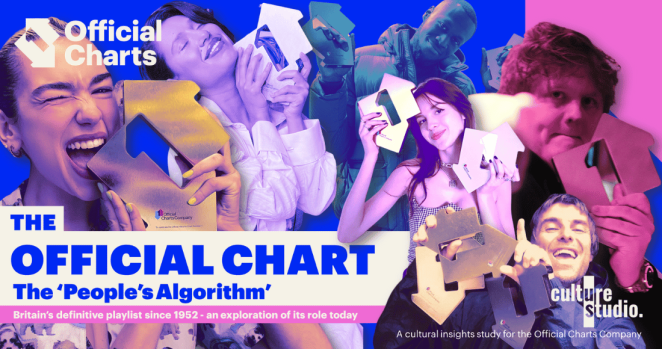
Establishing the Official Charts as a recognisable brand in its own right is what I am proudest of, its greatest manifestation being the Number 1 Award which we have given out to over 300 artists in the past 11 years.
The award was deliberately designed in the shape of our unique “arrows-and-one” icon, and I get a buzz every time I see an artist holding it, at their moment of celebration. It is incredibly powerful. And the enthusiasm that artists show for our award says everything about what it means to be Number 1. When Ed Sheeran achieved his 20th career UK number 1 a few weeks ago, the look he gave our award meant volumes.
We now supply around 1,000 awards a year to the artists, their labels, publishers, management companies. The fact that it is genuinely valued by so many people in the sector is a source of huge pride.
But, just as the artists chase their number 1s, I’m always looking for our next win - and the new relaunch of our brand and re-envisioning of our consumer-facing platform feels like another really significant step-change for us, both vamping up the offer to our highly engaged online audience and (in so doing) enhancing its value for advertisers.
Which individuals and/or agencies do you gain inspiration from? Do you have any heroes in the industry?
I have worked with some exceptional people over the years – my first news editor John Dillon (at the Hackney Gazette), editors Steve Redmond and Selina Webb (at Music Week) were all hugely influential, plus (at the charts) our long-standing director Kim Bayley (chief executive of the Entertainment Retailers Association) and all of my non-exec chairs (David Joseph, Rob Salter, Korda Marshall, Kevin Brown, Paul Firth and Charlotte de Burgh-Holder).
But I am also blessed to have a fantastic, young leadership team, who I am incredibly proud of – I genuinely think they are the best in the business and they inspire me every day.
Outside of those people I have worked directly with, I am in awe of the rare creative individuals who build audiences by giving life to a singular vision – the creative sector is packed with them and are why we punch so far above our own weight here in the UK, including music people such as Rob Stringer, Martin Mills, Chris Blackwell, Korda Marshall, Mike Smith, I could go on and on.
If you could go back to your teenage years, would you have done things differently? Do you have any regrets?
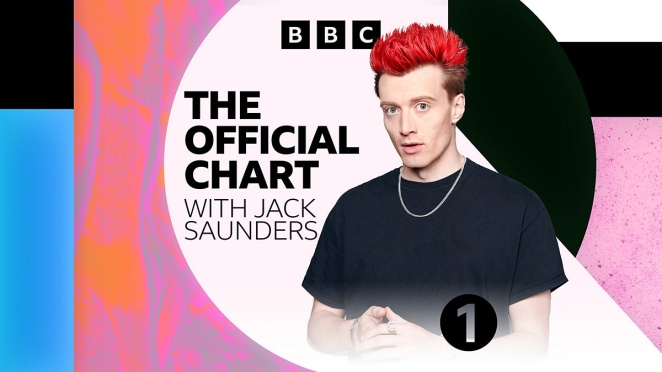
I tend not to look back in that way, regret can eat away at you – and I firmly believe we are shaped into the people we are by all the things that happen to us, even the most awful events. If I could say anything to my 18-year-old self it would be to be more confident, follow your gut, that life has a tendency to work itself out.
I have two daughters, both of whom are currently at University, and I am so aware how tough the teenage years (and early Twenties) are, how unsettling they can be and how much young people of that age worry about the future. I know I did.
Fact is, if you simply do your best and are true to yourself and your passions, things will work out. It’s not that I’m fatalistic, but believe that hard work, focus and a belief in what you are doing goes a long way.
If you weren’t in your current industry, what would you be doing?
I would have remained a journalist and would have continued to be a writer in some way – journalism, non-fiction or fiction, probably a bit of both. I really couldn’t imagine myself doing anything else.
What’s your one big dream for the future of the industry?
The key challenge of era looks likely to be evolution of AI. And I hope that the creative industries retain the confidence to fight their corner and protect what makes them so special. Humans are creators. We can reflect love and nuance in a way that machines never can - or, at least, they can only do so by learning for us. We need to remember that and value what we bring to creativity.
AI can only add to the huge choice which is available to us across all areas of creativity too, the vast range of options having already produced huge problems for creators looking to make a living.
Digital technology has put so much created content at our fingertips, free to access, but also in such huge quantities, that it is increasingly difficult for “special” creations to stand out. It is essential that we find a solution to this problem.
What are your top tips for aspiring creative professionals?

Try to take something from every experience, from every person you meet – even your failures or that terrible boss who is demonstrating exactly the wrong way to lead.
Never trust yourself 100% - this is something which was drummed into me as a journalist, to continually questioning yourself and drive yourself to find further evidence, more information to back up your decisions. Make sure that, when you do have to make calls on behalf of your business, you can do so decisively and with total confidence in your decision.
And - strive to do the very best of every job you can but recognise that the pursuit of perfection can be the enemy of delivery. Get. Things. Done.
What are your top tips for other creative leaders?
Surround yourself with the best. Trust your people. Humility above all.
When you think about your team, what is the thing that matters to you the most?
That they work as a team. I have worked at companies earlier in my career which became broken down by poisonous internecine conflict. Of course, every team will have specialist individuals, but listening to others, taking on board their views (and choosing your battles) is essential.
Do you have any websites, books or resources you would recommend?
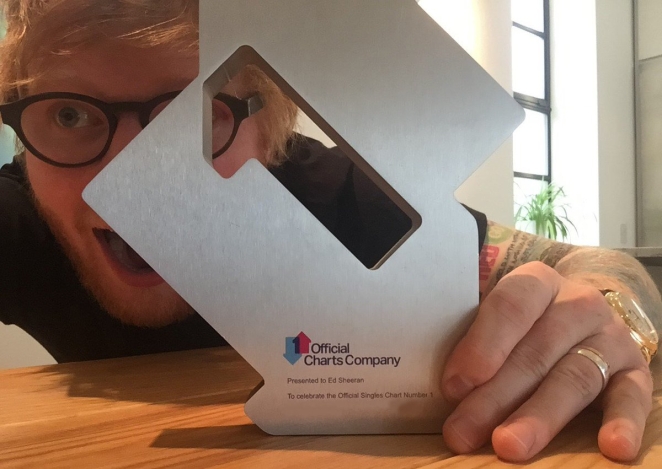
I am a big reader and two Nick Cave-connected books have really resonated with me over the past year - his own Faith, Hope and Carnage book (a series of conversations with Sean O’Hagen) is an absorbing reflection on the power of belief when faced with the most unfathomable tragedies. Genuinely moving and enlightening. And Nina Simone’s Gum by Warren Ellis (one of Cave’s longest standing collaborators) examines art, objectivity and obsession.
Otherwise, I am a bit of a magazine junkie – Wired, Sight & Sound, Mojo, Electronic Sound, New York Times, the Guardian arts section, among others, and I also have a subscription to Readly (basically Netflix for magazines and newspaper). There just aren’t enough hours in the day.
And, finally, I have to shout out to my Kindle Scribe – a hardback sized screen, ability to handwrite notes, add post-its to your Kindle books and mark up PDFs, what’s not to like? I previously considered plunging in to Remarkable universe, but when Kindle introduced their rival last year, giving access to all of the above and the 1,700 Kindle books I have accumulated over the past decade, it made so much sense.

